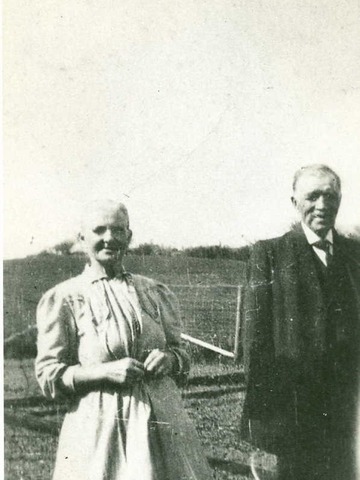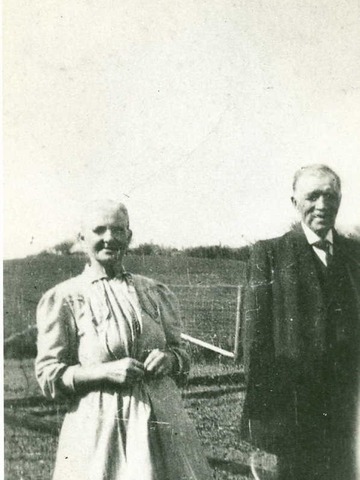Van Hoof Tree » Albert Leon Mosher (1886-????)
Personal data Albert Leon Mosher
Source 1- He was born on October 21, 1886.
- Resident in the year 1910: Lunenburg, Nova Scotia, Canada.
- A child of Edmund Nicholas Mosher (Moser) and Arabella "Isabel" Young
Household of Albert Leon Mosher
Timeline Albert Leon Mosher
This functionality is only available in Javascript supporting browsers.
Click on the names for more info.
Symbols used:  grandparents
grandparents
 parents
parents
 brothers/sisters
brothers/sisters
 children
children
 grandparents
grandparents
 parents
parents
 brothers/sisters
brothers/sisters
 children
children
Sources
- Geni World Family Tree, via https://www.myheritage.com/research/reco...
Albert Leon MosherGender: MaleBirth: Oct 21 1886Father: Edmund Nicholas MosherMother: Arabella Mosher (born Young)Wife: Lilla Maude Mosher (born Langille)Child: Albert Reginald MosherSiblings: William Arthur Mosher, Clarence Edmund Mosher, Susan Catherine Zwicker (born Mosher), Charles Alexander Mosher, James Freeman Mosher, Louisa Belle Langille (born Mosher), Robert Lawrence Mosher, Laura Catherine Hiltz (born Mosher), Stannage Whitfield Mosher
The Geni World Family Tree is found on www.Geni.com. Geni is owned and operated by MyHeritage.
Historical events
Birthday October 21, 1886
- The temperature on October 21, 1886 was about 10.4 °C. There was 1 mm of rain. The air pressure was 20 kgf/m2 and came mainly from the south-southwest. The airpressure was 76 cm mercury. The atmospheric humidity was 93%. Source: KNMI
- Koning Willem III (Huis van Oranje-Nassau) was from 1849 till 1890 sovereign of the Netherlands (also known as Koninkrijk der Nederlanden)
- In The Netherlands , there was from April 23, 1884 to April 21, 1888 the cabinet Heemskerk, with Mr. J. Heemskerk Azn. (conservatief) as prime minister.
- In the year 1886: Source: Wikipedia
- The Netherlands had about 4.5 million citizens.
- March 27 » Geronimo, Apache warrior, surrenders to the U.S. Army, ending the main phase of the Apache Wars.
- April 8 » William Ewart Gladstone introduces the first Irish Home Rule Bill into the British House of Commons.
- May 1 » Rallies are held throughout the United States demanding the eight-hour work day, culminating in the Haymarket affair in Chicago, in commemoration of which May 1 is celebrated as International Workers' Day in many countries.
- May 29 » The pharmacist John Pemberton places his first advertisement for Coca-Cola, which appeared in The Atlanta Journal.
- June 10 » Mount Tarawera in New Zealand erupts, killing 153 people and burying the famous Pink and White Terraces. Eruptions continue for three months creating a large, 17km long fissure across the mountain peak.
- August 31 » The 7.0 Mw Charleston earthquake affects southeastern South Carolina with a maximum Mercalli intensity of X (Extreme). Sixty people killed with damage estimated at $5–6 million.
Same birth/death day
- 1877 » Oswald Avery, Canadian-American physician and microbiologist († 1955)
- 1884 » Claire Waldoff, German singer and actress († 1957)
- 1886 » Eugene Burton Ely, American soldier and pilot († 1911)
- 1887 » Krishna Singh, Indian lawyer and politician, 1st Chief Minister of Bihar († 1961)
- 1894 » Edogawa Ranpo, Japanese author and critic († 1965)
- 1895 » Paavo Johansson, Finnish javelin thrower and decathlete († 1983)
About the surname Mosher
- View the information that Genealogie Online has about the surname Mosher.
- Check the information Open Archives has about Mosher.
- Check the Wie (onder)zoekt wie? register to see who is (re)searching Mosher.
The Van Hoof Tree publication was prepared by John Van Hoof.
When copying data from this family tree, please include a reference to the origin:
John Van Hoof, "Van Hoof Tree", database, Genealogy Online (https://www.genealogieonline.nl/van-hoof-tree/I608324.php : accessed May 7, 2025), "Albert Leon Mosher (1886-????)".
John Van Hoof, "Van Hoof Tree", database, Genealogy Online (https://www.genealogieonline.nl/van-hoof-tree/I608324.php : accessed May 7, 2025), "Albert Leon Mosher (1886-????)".

